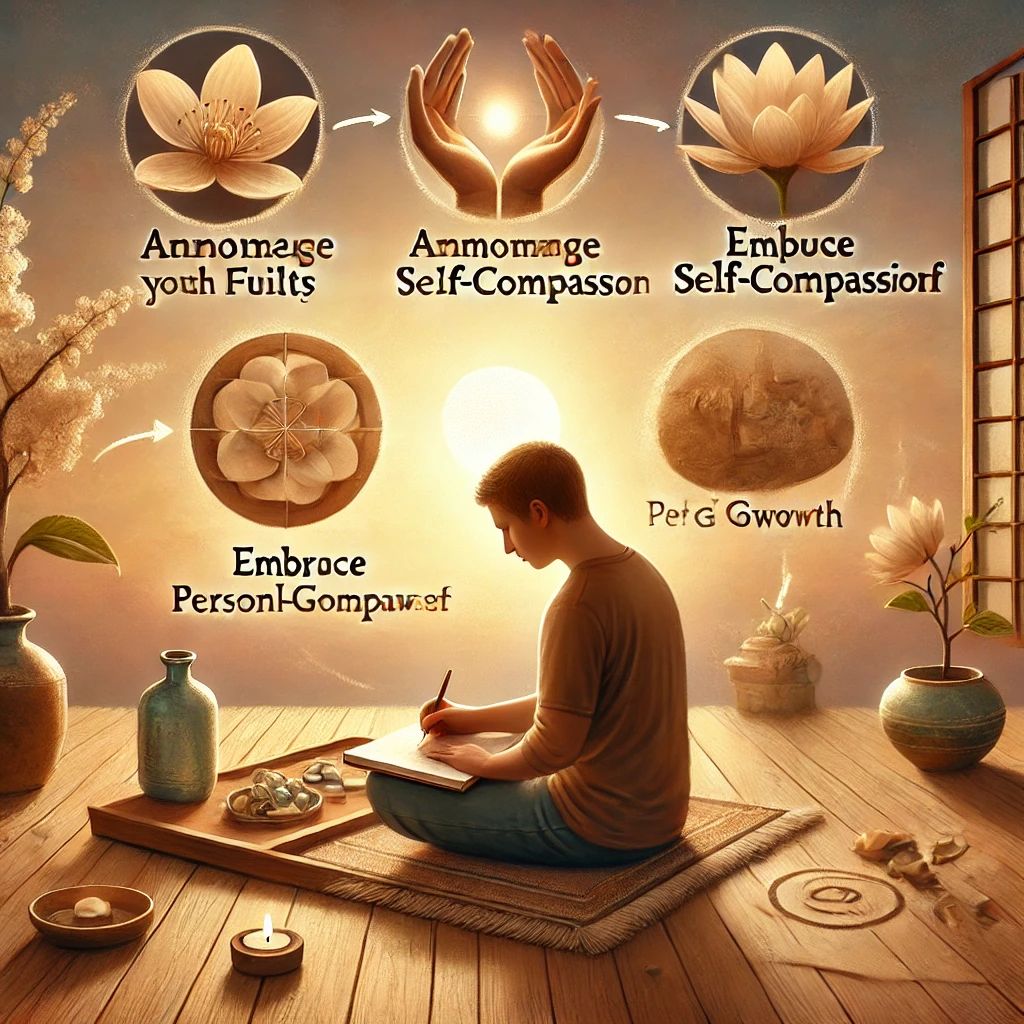
Understanding Guilt
Guilt is a natural emotional response that arises when we believe we’ve done something wrong or failed to live up to our own standards or the expectations of others. While guilt can be a helpful signal for self-reflection and change, holding onto it for too long can harm your mental health, leading to feelings of shame, self-criticism, and even depression. Learning to forgive yourself is essential for emotional well-being and personal growth.
Why Self-Forgiveness is Important
Self-forgiveness allows you to let go of negative feelings and move forward in a healthier, more positive direction. By forgiving yourself, you can release the burden of guilt and create space for self-compassion, healing, and growth. It also fosters resilience, making it easier to navigate future challenges and setbacks.
Steps to Deal with Guilt and Forgive Yourself
Here are practical steps to help you deal with guilt and learn to forgive yourself:
1. Acknowledge and Accept Your Feelings
The first step in dealing with guilt is to recognize and accept the emotions you're experiencing:
Identify the source of guilt: Reflect on what is causing the guilt. Is it a specific action, a perceived failure, or something outside of your control?Allow yourself to feel the emotions: Don’t try to suppress or ignore the guilt. Acknowledge that it is a natural feeling and give yourself permission to experience it.Avoid self-judgment: Remember that feeling guilty does not mean you are a bad person. It simply means you care about your actions and their impact.2. Practice Self-Compassion
Being kind to yourself is essential when dealing with guilt. Treat yourself with the same compassion you would offer a friend:
Use positive self-talk: Replace negative thoughts with gentle, understanding words. For example, instead of saying, “I’m a failure,” say, “I made a mistake, but I’m still a good person.”Understand that imperfection is human: Accept that everyone makes mistakes. It’s part of being human, and it does not define your worth.Focus on what you’ve learned: Reflect on the experience as an opportunity for growth rather than a defining failure.3. Take Responsibility and Make Amends
Addressing the situation that caused the guilt can help you move toward forgiveness:
Acknowledge your actions: Take responsibility for what you did without making excuses. Accepting accountability is a necessary part of the healing process.Make amends if possible: If your actions affected someone else, consider apologizing and finding ways to make things right. Even a simple acknowledgment can help repair the relationship and reduce feelings of guilt.Set realistic expectations for yourself: Understand that while you can make amends, you cannot always undo the past. Focus on what you can do now to move forward.4. Learn from the Experience
Use the guilt as an opportunity for personal growth:
Reflect on what went wrong: Think about the situation and identify what you could have done differently. This reflection helps you learn from the experience and prevent similar situations in the future.Set personal goals for improvement: Create goals that help you become a better version of yourself, such as practicing better communication, being more patient, or setting boundaries.Celebrate progress: Acknowledge the steps you’ve taken to improve and grow. Even small progress is a sign of growth and can help reduce lingering guilt.5. Let Go of Perfectionism
Perfectionism can intensify feelings of guilt by setting unrealistic standards:
Accept that mistakes are part of life: Allow yourself to be imperfect and understand that everyone makes mistakes. It’s how you learn and grow.Set achievable goals: Rather than aiming for perfection, focus on realistic and attainable goals that encourage progress without overwhelming pressure.Be kind to yourself when you fall short: If things don’t go as planned, avoid harsh self-criticism. Remind yourself that setbacks are a natural part of the journey.6. Practice Forgiveness Techniques
Actively practicing forgiveness can help you let go of guilt and find peace:
Write a letter to yourself: In this letter, acknowledge your mistakes and express your feelings. Then, write a message of forgiveness to yourself, letting go of the guilt.Meditate on forgiveness: Use guided meditations that focus on self-forgiveness. Visualization exercises can help you release guilt and cultivate a sense of inner peace.Use affirmations: Repeat positive affirmations such as “I forgive myself,” “I am worthy of love and compassion,” or “I am learning and growing every day.”7. Seek Professional Support if Needed
If guilt is overwhelming or persistent, seeking professional help can provide valuable support:
Talk to a therapist or counselor: A mental health professional can help you work through feelings of guilt and guide you toward self-forgiveness.Join a support group: Sometimes, sharing your experiences with others who understand can help you feel less isolated and provide new perspectives on dealing with guilt.Practice self-care: Make time for activities that help you relax and recharge, such as exercise, hobbies, or spending time with loved ones.Conclusion: Embrace Self-Forgiveness for a Healthier Life
Learning to deal with guilt and forgive yourself is a process that takes time and effort. By acknowledging your feelings, practicing self-compassion, taking responsibility, and letting go of perfectionism, you can release the burden of guilt and move forward with a renewed sense of self-worth. Remember, self-forgiveness is not about excusing your mistakes but about embracing your humanity and choosing to grow from your experiences.
The article was prepared by Lisa Cooper.



